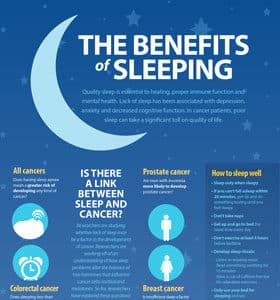Exercise Can Play a Significant Role in Reducing Stress and Anxiety for Cancer Patients and Survivors

Neurotransmitter Regulation: Regular exercise can help regulate neurotransmitters like serotonin and dopamine, which are associated with mood and emotional well-being. Imbalances in these neurotransmitters can contribute to feelings of anxiety and depression.
Distraction and Focus: Engaging in physical activity can provide a healthy distraction from cancer-related worries. Focusing on a specific exercise routine or activity can help shift the focus away from stressors and create a more positive mindset.

Stress Hormone Regulation: Physical activity can help regulate the body’s stress response by reducing the production of stress hormones such as cortisol. Lower cortisol levels are associated with decreased anxiety.
Social Interaction: Participating in group exercise classes or engaging in physical activities with others can provide opportunities for social interaction and support. Social connections can have a positive impact on mental well-being
Sense of Empowerment: Engaging in exercise empowers cancer patients and survivors to take an active role in their own health and well-being. This sense of control can counter feelings of helplessness and boost self-esteem.


Relaxation and Mind-Body Connection: Practices like yoga, tai chi, and mindfulness-based exercises combine physical movement with relaxation techniques. These practices can help individuals connect their body and mind, leading to reduced stress and anxiety.
It’s important for cancer patients and survivors to consult with a CETI Cancer Exercise Specialist before starting any exercise regimen. The type, intensity, and duration of exercise should be tailored to an individual’s medical condition, treatment plan, and physical capabilities. Working with qualified healthcare professionals, such as oncologists, physical therapists, and CETI Cancer Exercise Specialists, can ensure that exercise is safe and effective in reducing stress and anxiety while supporting overall well-being.

